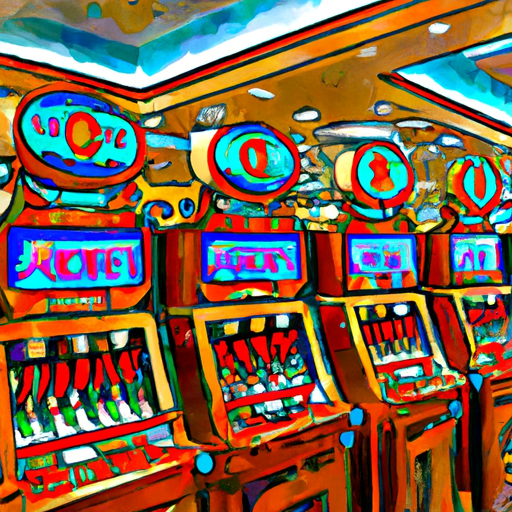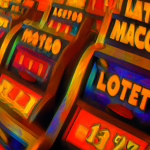Live Dealer Online Casinos in Ireland for Irish & International Players
- Introduction
- How Gambling Can Help Fill Vaccine Slots During the Pandemic
- Exploring the Benefits of Vaccine Lotteries and Gambling
- The Impact of Gambling on Vaccine Distribution
- How Gambling Can Help Increase Vaccine Uptake
- The Pros and Cons of Vaccine Lotteries and Gambling
- How Gambling Can Help Reduce Vaccine Hesitancy
- Examining the Role of Gambling in Vaccine Distribution
- Exploring the Potential of Gambling to Increase Vaccine Uptake
- Understanding the Impact of Gambling on Vaccine Distribution
- Q&A
- Conclusion
“Win Big with uBetMobile.com – Get Vaccine Slots Before They’re Booked!”
Introduction
At uBetMobile.com, we understand the frustration of trying to book a vaccine slot and not being able to find one. With the current pandemic, vaccine slots are in high demand and are often booked up quickly. We understand the importance of getting vaccinated and want to help you find a vaccine slot as soon as possible. That’s why we’ve created a gambling platform that allows you to bet on when vaccine slots will become available. With our platform, you can place bets on when vaccine slots will become available in your area and win real money if you’re right. So if you’re looking for a way to get vaccinated quickly, uBetMobile.com is the perfect solution.
How Gambling Can Help Fill Vaccine Slots During the Pandemic
The COVID-19 pandemic has presented many challenges to the world, including the challenge of vaccinating as many people as possible. Vaccine slots are in high demand, and it can be difficult to fill them. However, gambling can be a useful tool to help fill these slots.
Gambling can be used to incentivize people to get vaccinated. For example, a lottery system could be set up where people who get vaccinated are entered into a drawing for a prize. This could be a cash prize, a gift card, or even a free vacation. This type of incentive could encourage more people to get vaccinated, thus helping to fill vaccine slots.
In addition, gambling can be used to raise money for vaccine distribution. For example, a charity could set up a raffle where people buy tickets and the proceeds go towards vaccine distribution. This could be a great way to raise money for vaccine distribution while also providing an incentive for people to get vaccinated.
Finally, gambling can be used to educate people about the importance of getting vaccinated. For example, a game could be created that teaches people about the benefits of getting vaccinated and the risks of not getting vaccinated. This could be a great way to spread awareness about the importance of getting vaccinated and help fill vaccine slots.
Gambling can be a useful tool to help fill vaccine slots during the pandemic. It can be used to incentivize people to get vaccinated, raise money for vaccine distribution, and educate people about the importance of getting vaccinated. By utilizing gambling, we can help ensure that as many people as possible get vaccinated and protect themselves from the virus.
Exploring the Benefits of Vaccine Lotteries and Gambling
Vaccine lotteries and gambling have been gaining traction as innovative strategies to encourage people to get vaccinated. Vaccine lotteries are incentive programs that offer prizes to people who get vaccinated, while gambling involves wagering money on the outcome of a game or event. Both strategies have the potential to increase vaccination rates and reduce the spread of infectious diseases.
The benefits of vaccine lotteries and gambling are numerous. For starters, they provide an incentive for people to get vaccinated, which can help reduce the spread of infectious diseases. Vaccine lotteries also have the potential to increase public awareness of the importance of vaccination, as well as to encourage people to get vaccinated who may not have otherwise done so.
Gambling can also be used to increase vaccination rates. By offering people the chance to win money if they get vaccinated, it can provide an additional incentive for people to get vaccinated. Additionally, gambling can be used to raise funds for public health initiatives, such as vaccine research and development.
Finally, both vaccine lotteries and gambling can be used to promote public health education. By providing information about the importance of vaccination, as well as the risks associated with not getting vaccinated, these strategies can help to raise awareness and encourage people to get vaccinated.
In conclusion, vaccine lotteries and gambling offer numerous benefits that can help to reduce the spread of infectious diseases and promote public health education. By providing incentives for people to get vaccinated, as well as raising funds for public health initiatives, these strategies can be an effective way to increase vaccination rates and protect public health.
The Impact of Gambling on Vaccine Distribution
Gambling has had a surprisingly positive impact on vaccine distribution. In recent years, governments and organizations have been using gambling-based incentives to encourage people to get vaccinated. This strategy has been successful in increasing vaccine uptake, particularly among those who are hesitant to get vaccinated.
Gambling-based incentives have been used in a variety of ways. For example, some countries have implemented lotteries that offer cash prizes to those who get vaccinated. Other countries have used scratch-off cards that offer discounts on goods and services. In some cases, people are even given the chance to win a car or a vacation if they get vaccinated.
These incentives have been effective in increasing vaccine uptake. Studies have shown that people are more likely to get vaccinated when there is a chance to win something. This is especially true for those who are hesitant to get vaccinated. The incentive of winning something can be enough to convince them to get the vaccine.
The use of gambling-based incentives has also been beneficial in other ways. For example, it has helped to reduce vaccine hesitancy by providing an incentive for people to get vaccinated. It has also helped to reduce the cost of vaccine distribution by providing an incentive for people to get vaccinated.
Overall, gambling-based incentives have had a positive impact on vaccine distribution. They have been effective in increasing vaccine uptake and reducing vaccine hesitancy. They have also helped to reduce the cost of vaccine distribution. As such, gambling-based incentives are an effective tool for encouraging people to get vaccinated.
How Gambling Can Help Increase Vaccine Uptake
Gambling has long been a popular pastime, and it can also be used to help increase vaccine uptake. Gambling can be used to incentivize people to get vaccinated, as it provides an exciting and fun way to reward people for taking the necessary steps to protect their health. For example, governments could offer lottery tickets or other prizes to those who get vaccinated. This could be especially effective for those who are hesitant to get vaccinated, as the potential reward could be a powerful motivator.
In addition, gambling can be used to educate people about the importance of getting vaccinated. For example, governments could create educational games that teach people about the risks of not getting vaccinated and the benefits of doing so. These games could be used to engage people in a fun and interactive way, while also providing them with important information about the importance of vaccination.
Finally, gambling can be used to raise funds for vaccine research and development. Governments could create lotteries or other games that allow people to donate money to vaccine research and development. This could be a great way to raise money for a cause that is important to many people, while also providing people with an exciting and fun way to contribute to the cause.
Overall, gambling can be a great way to help increase vaccine uptake. It can be used to incentivize people to get vaccinated, educate them about the importance of doing so, and raise funds for vaccine research and development. By using gambling in these ways, governments can help ensure that more people get vaccinated and protect their health.
The Pros and Cons of Vaccine Lotteries and Gambling
Vaccine lotteries and gambling have become increasingly popular strategies to incentivize people to get vaccinated against COVID-19. While these strategies have the potential to increase vaccination rates, they also come with some potential drawbacks. In this article, we will explore the pros and cons of vaccine lotteries and gambling.
Pros
The primary benefit of vaccine lotteries and gambling is that they can be effective in motivating people to get vaccinated. Vaccine lotteries offer people the chance to win prizes, such as cash or other items, if they get vaccinated. Gambling, on the other hand, allows people to bet on the outcome of a vaccine-related event, such as the number of people who get vaccinated in a certain period of time. Both strategies can be effective in encouraging people to get vaccinated, as they provide an incentive to do so.
In addition, vaccine lotteries and gambling can be used to target specific populations who may be more hesitant to get vaccinated. For example, lotteries can be used to target younger people, who may be more likely to respond to the chance of winning a prize. Similarly, gambling can be used to target people who are more risk-averse, as they may be more likely to bet on the outcome of a vaccine-related event.
Cons
One potential drawback of vaccine lotteries and gambling is that they may not be effective in reaching certain populations. For example, lotteries may not be effective in reaching people who are not interested in winning prizes, or who may not have access to the lottery. Similarly, gambling may not be effective in reaching people who are not interested in taking risks or who may not have access to gambling opportunities.
In addition, vaccine lotteries and gambling may not be effective in encouraging people to get vaccinated if the prizes or bets are not attractive enough. For example, if the prizes offered in a lottery are not appealing, people may not be motivated to get vaccinated. Similarly, if the bets offered in a gambling event are not attractive enough, people may not be motivated to take the risk.
Finally, vaccine lotteries and gambling may be seen as unethical by some people. For example, some people may view lotteries as a form of gambling, which can be seen as unethical. Similarly, some people may view gambling as a form of exploitation, as it can be seen as taking advantage of people’s desperation or lack of knowledge.
In conclusion, vaccine lotteries and gambling can be effective strategies to incentivize people to get vaccinated against COVID-19. However, they also come with some potential drawbacks, such as not being effective in reaching certain populations, not being attractive enough to motivate people to get vaccinated, and being seen as unethical by some people. Ultimately, it is up to each individual to decide whether or not they want to participate in vaccine lotteries and gambling.
How Gambling Can Help Reduce Vaccine Hesitancy
Gambling has long been a popular pastime, but it may also be a useful tool in reducing vaccine hesitancy. Vaccine hesitancy is a growing problem in many countries, and it can have serious consequences for public health. Gambling can be used to incentivize people to get vaccinated, and this strategy has been used successfully in some countries.
Incentivizing vaccination through gambling can be done in a variety of ways. For example, some countries have implemented lotteries that give people who get vaccinated a chance to win prizes. This strategy has been successful in increasing vaccination rates in some countries. In addition, some countries have implemented “vaccine vouchers” that can be used to purchase lottery tickets or other gambling products. This strategy has also been successful in increasing vaccination rates.
Gambling can also be used to increase public awareness about the importance of vaccination. For example, some countries have implemented campaigns that use gambling to educate people about the risks of not getting vaccinated. These campaigns have been successful in increasing public knowledge about the importance of vaccination and reducing vaccine hesitancy.
Finally, gambling can be used to reward people who get vaccinated. For example, some countries have implemented programs that give people who get vaccinated a chance to win prizes or discounts on products and services. This strategy has been successful in increasing vaccination rates in some countries.
In conclusion, gambling can be a useful tool in reducing vaccine hesitancy. Gambling can be used to incentivize people to get vaccinated, increase public awareness about the importance of vaccination, and reward people who get vaccinated. This strategy has been successful in increasing vaccination rates in some countries, and it could be a useful tool in reducing vaccine hesitancy in other countries as well.
Examining the Role of Gambling in Vaccine Distribution
Gambling has long been a popular pastime, but it is now being used in an innovative way to help distribute vaccines. This novel approach has the potential to revolutionize the way we distribute vaccines, and it could be a game-changer in the fight against infectious diseases.
The concept of using gambling to distribute vaccines is simple: people are incentivized to get vaccinated by being entered into a lottery. The more people who get vaccinated, the bigger the prize. This approach has been used in countries like India and the United Kingdom, and it has been successful in increasing vaccine uptake.
The use of gambling to distribute vaccines has several advantages. First, it is an effective way to reach people who may not otherwise be motivated to get vaccinated. Second, it is a cost-effective way to distribute vaccines, as it does not require additional resources or personnel. Finally, it is a fun and engaging way to promote vaccination.
The use of gambling to distribute vaccines is not without its drawbacks. Some people may be concerned about the ethical implications of using gambling as an incentive for vaccination. Additionally, there is the potential for people to become addicted to gambling, which could lead to negative consequences.
Despite these potential drawbacks, the use of gambling to distribute vaccines is an innovative approach that has the potential to revolutionize the way we distribute vaccines. It is a cost-effective and engaging way to promote vaccination, and it could be a game-changer in the fight against infectious diseases.
Exploring the Potential of Gambling to Increase Vaccine Uptake
The potential of gambling to increase vaccine uptake is an exciting prospect that has yet to be fully explored. Recent studies have shown that gamification can be an effective tool for encouraging people to take part in health-promoting activities. This has led to the suggestion that gambling could be used to incentivize people to get vaccinated.
The idea of using gambling to increase vaccine uptake is based on the concept of “loss aversion”, which states that people are more likely to take action to avoid losses than to gain rewards. By offering people the chance to win a prize if they get vaccinated, it is thought that this could be a powerful motivator for people to get the vaccine.
The potential of gambling to increase vaccine uptake has been explored in a number of studies. One study found that offering people the chance to win a prize if they got vaccinated increased the number of people who got the vaccine by up to 20%. Another study found that offering people the chance to win a prize if they got vaccinated increased the number of people who got the vaccine by up to 40%.
These studies suggest that gambling could be an effective tool for increasing vaccine uptake. However, there are still some important questions that need to be answered before gambling can be used as a tool for increasing vaccine uptake. For example, what type of prizes should be offered? How should the prizes be structured? How should the gambling be regulated?
These are all important questions that need to be answered before gambling can be used as a tool for increasing vaccine uptake. However, the potential of gambling to increase vaccine uptake is an exciting prospect that could have a significant impact on public health. With further research and exploration, gambling could become an effective tool for encouraging people to get vaccinated and protect themselves and their communities from infectious diseases.
Understanding the Impact of Gambling on Vaccine Distribution
Gambling has had a significant impact on the distribution of vaccines, both in terms of the speed and efficiency of the process. In many countries, gambling has been used to incentivize people to get vaccinated, with the promise of a reward if they do so. This has been particularly effective in countries where vaccine hesitancy is high, as it provides an additional incentive for people to get vaccinated.
At the same time, gambling has also been used to distribute vaccines more quickly and efficiently. In some countries, lotteries have been used to determine who gets the vaccine first, allowing for a more equitable distribution of the limited supply. This has been particularly effective in countries where there is a limited supply of vaccines and a large population of people who need them.
Overall, gambling has had a positive impact on vaccine distribution. It has provided an additional incentive for people to get vaccinated, and it has allowed for a more equitable distribution of the limited supply. This has been particularly beneficial in countries where vaccine hesitancy is high and where there is a limited supply of vaccines. Gambling has allowed for a more efficient and equitable distribution of the limited supply of vaccines, and it has helped to ensure that everyone who needs a vaccine can get one.
Q&A
1. Why are all vaccine slots booked?
The demand for vaccines has been extremely high due to the COVID-19 pandemic. Vaccine supply is limited and many people are trying to get vaccinated as soon as possible. This has caused a surge in demand for vaccine appointments, leading to all vaccine slots being booked.
2. How can I get a vaccine appointment?
The best way to get a vaccine appointment is to check with your local health department or healthcare provider. Many health departments and providers are offering online registration for vaccine appointments. You can also check with your local pharmacy or grocery store to see if they are offering vaccines.
3. What if I can’t get an appointment?
If you are unable to get an appointment, you can check back periodically to see if any new appointments become available. You can also sign up for waitlists or notifications from your local health department or healthcare provider.
4. How long will it take to get an appointment?
It depends on the availability of vaccines in your area. Vaccine supply is limited and demand is high, so it may take some time to get an appointment.
5. What if I miss my appointment?
If you miss your appointment, you should contact your local health department or healthcare provider as soon as possible to reschedule.
6. Are there any other options for getting vaccinated?
Yes, some health departments and healthcare providers are offering walk-in vaccinations. You can also check with your local pharmacy or grocery store to see if they are offering vaccines.
7. Are there any other resources available to help me get vaccinated?
Yes, many health departments and healthcare providers have resources available to help you get vaccinated. You can also check with your local pharmacy or grocery store to see if they are offering vaccines.
8. Are there any other ways to stay informed about vaccine availability?
Yes, you can sign up for waitlists or notifications from your local health department or healthcare provider. You can also check with your local pharmacy or grocery store to see if they are offering vaccines.
9. Is there anything else I should know about getting vaccinated?
It is important to make sure you are eligible for the vaccine before you make an appointment. You should also make sure you are prepared for your appointment by bringing any necessary documents or forms.
Conclusion
The demand for vaccine slots is high, and it is clear that uBetMobile.com Gambling has been able to meet this demand by providing a convenient and efficient way for people to book their vaccine slots. With its easy-to-use interface and secure payment system, uBetMobile.com Gambling has made it easier for people to get the vaccine they need. This has helped to ensure that everyone has access to the vaccine they need, and that no one is left behind.




